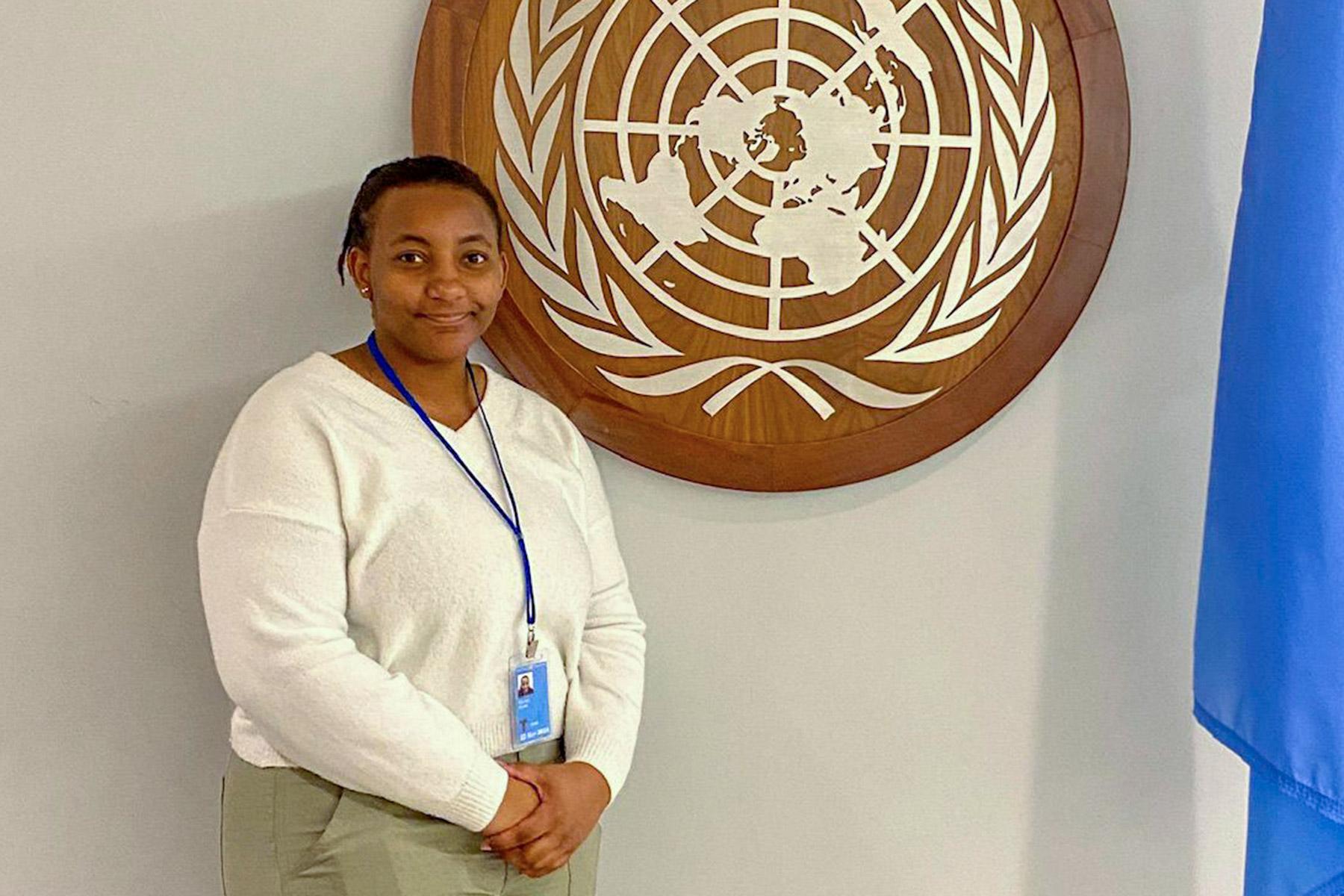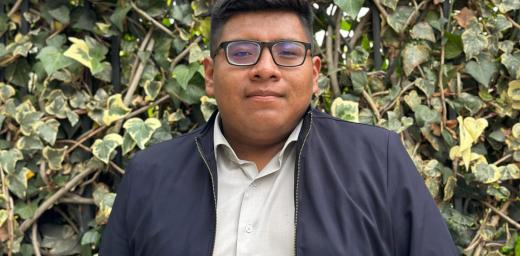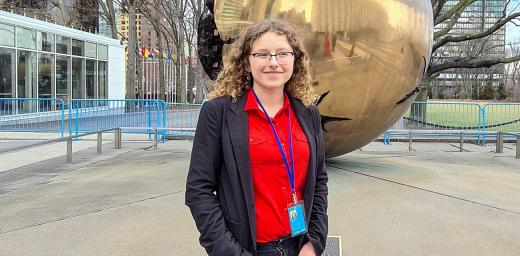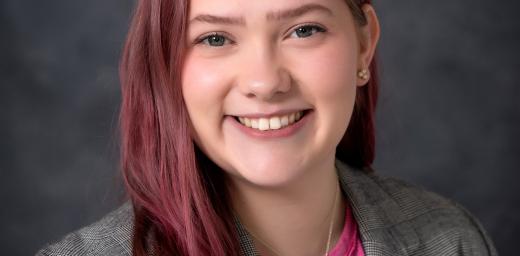Learning to build a more equitable world
As one of the youngest members of LWF’s delegation at the UN’s Commission on the Status of Women, Allanah Carron was inspired to find so many other women facing the same struggles as she does in her native Suriname

Allanah Carron inside the United Nations headquarters in New York. Photo: Lutheran Office for World Community
A young participant in the UN’s Commission on the Status of Women shares top takeaways from her time in New York
I was born and raised in Paramaribo, the capital of Suriname, which is one of the smallest countries in South America, but also one of the most ethnically diverse. I am currently studying at St Olaf College in Minnesota, as part of the Evangelical Lutheran Church in America’s International Women Leaders scholarship program.
When I thought about attending the United Nation’s Commission on the Status of Women (CSW), I feared that I would not have much to contribute, as one of the youngest members of the LWF delegation. But this quickly changed when I began talking with the other participants and I realized that I will always have something to contribute in spaces like these because of my own experiences as a young woman.
Before I came to New York, I felt that the struggles facing women of all races and ethnicities were just a normal part of life. This is the mistake that so many other people make too, because sexism, discrimination and injustice are not supposed to be something natural and unavoidable. I realized that this is not the kind of world I want to live in and I will no longer shrug off sexist comments or anything of that nature.
CSW “strengthened me to keep fighting and reaffirmed that I am not alone.”Allanah Carron, ELCA International Women Leaders’ scholar
CSW68 was deeply inspiring for me, but it was painful and beautiful all at the same time. I met politicians who are practicing their “right” of willful ignorance of the problems in their countries. But I also met many strong and inspiring women. It was truly an adventure that I loved participating in.
Working on fighting systems that equip men – and sometimes women as well - to marginalize, minoritize and control the lives of others can be exhausting and difficult work. But being around women from all over the world who are facing similar challenges truly strengthened me to keep fighting and reaffirmed that I am not alone, even if it feels like that sometimes.
Our individual actions can cumulatively serve to maintain existing forms of inequity — but they can also serve to dismantle systems of oppression. If we remain unwilling to do serious individual, institutional, and structural work, our path toward a more equitable future will stagnate and our goals will remain out of reach.
I have many takeaways from CSW68 but the main one is that we must work to establish and strengthen effective policies and systems of accountability that improve the status of women at all levels. We do not have to reinvent the wheel. It has already been invented but we can and should tweak it to fit today’s standards. Or rather, we should improve it to fit the world we are trying to create - a world we have never seen before.
We are building this new world as we go and we must speak this reality into existence. In order to write a different story, we have to use a different language. Together we can make this new world whatever we want it to be, a world in which justice, dignity and equal access to resources is the standard for all, rather than a privilege for the few.





